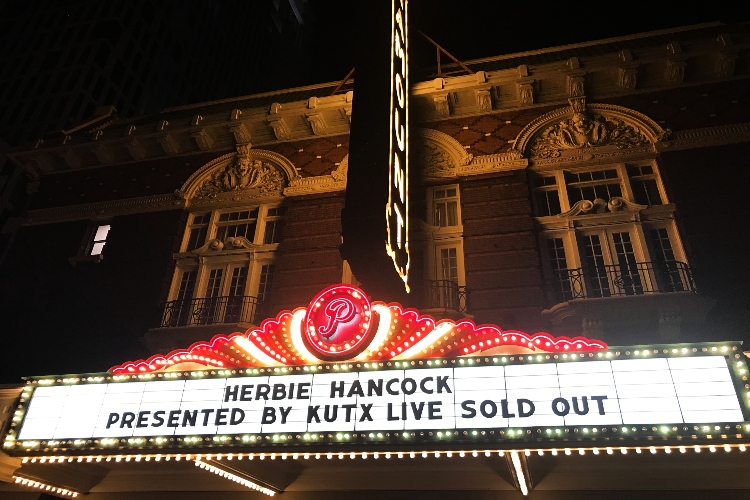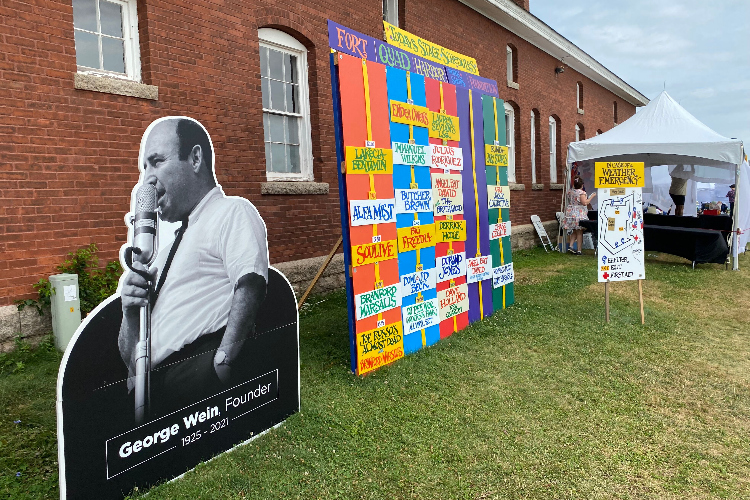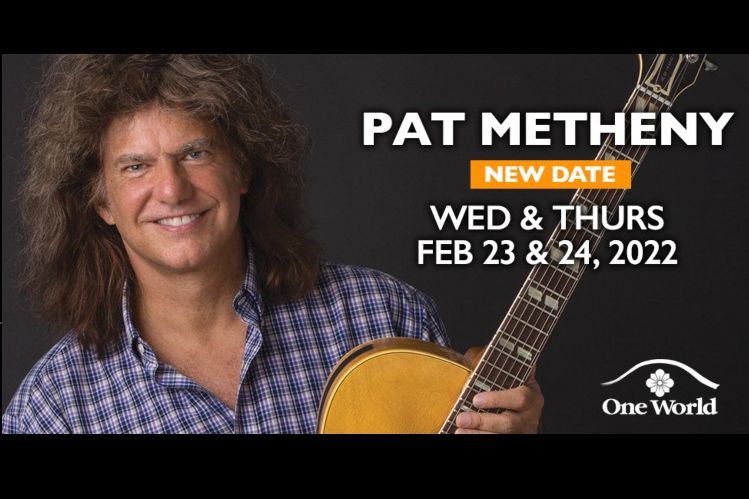Live Review: Herbie Hancock at the Paramount Theatre, Austin, TX, September 13, 2021
|
Getting your Trinity Audio player ready...
|
Established in 1915, Austin’s Paramount Theatre has hosted many iconic figures in American culture, including Harry Houdini, Katherine Hepburn, and the Marx Brothers. Even just limited to music, one finds, among others, John Phillip Sousa, Stevie Ray Vaughan, and Ray Charles. In 1983, Miles Davis performed there, and in the nearly four decades since, the venue has tried to book one of the trumpeter’s former bandmates, Herbie Hancock. While the pianist has visited the self-proclaimed Live Music Capital of the World several times, he would not play at the Paramount until September 15, 2021, as part of his brief summer tour. Given the performance’s historical context, it would be easy to expect a sense of nostalgia to prevail over the proceedings. Instead, as the pianist has done throughout his career, the focus was overwhelmingly on the development of new sounds. Or, as Hancock announced from the stage, “we try to see what’s not possible, and that is what we try to reach for.”
True to form, the evening’s highlights came by way of newer compositions. The opening overture found the ensemble navigating a sparse alien terrain formed by the bandleader’s keyboards. At times, Elena Pinderhughes’ flute darted and jabbed through its thick atmosphere, giving a glimmer of familiarity. James Genus’ bass and Justin Tyson’s drums gradually built to a dirty funk groove, equally steeped in the lineage of Hancock’s Headhunters works and presenting something new. Tyson’s steady rhythmic backdrop suggestive of sampling and Pinderhughes’ lyricism reinforced their respective connections with Robert Glasper and Christian Scott aTunde Adjuah. In so doing, the performance further underscored that as much as Hancock is a musical master, he’s not above learning from younger artists with new perspectives.
“RIP” found Pinderhughes temporarily putting aside her primary instrument in favor of singing self-written lyrics intending to remember those who have lost. Her repeated phrase of “breathe in, breathe out” was equal parts haunting and beautiful, as if both mourning loss and celebrating the life of the recently departed. In introducing the piece, Hancock explained its meaning, pausing and stumbling for a moment. While several significant figures in creative music have passed during the last few years, one wonders if Hancock particularly reflected upon the death of George Wein, the father of modern music festivals who died earlier in the day and with whom Hancock had worked several times. The later inclusion of a version of “Windows” suggested Chick Corea was in mind as well.

While newer songs proved most memorable, it is a mistake to label the renditions of Hancock’s classic compositions as unexciting or repetitious of what came before; the band gave each piece a new twist. A solo performance by Lionel Loueke of the melody of “Rockit’” was a nice treat for fans of the guitarist’s album, HH (Edition Records, 2020), and showcased the marvel of his unique singing and playing. The ensemble fleshed out new colors throughout “Cantaloupe Island,” and “Chameleon,” primarily through the interplay between Hancock, Loueke, and Pinderhughes. Frequently trading bars, each would seem to top what they had done before. Or they would mirror the other artist’s choices but force them into another direction. This approach was most evident in “Actual Proof,” where Loueke’s uncommon chordal choices and pedal modifications made his guitar sound like some newfound string instrument, while Pinderhughes’ tone took on an almost globular flute timbre. Though these more well-known songs were crowd pleasers to those familiar with Hancock’s music at a surface level, they left open enough room for some of his more dedicated fans, including this author, to enjoy them as well.
Since the 1960s, Herbie Hancock has established himself as an artist actively seeking to challenge the status quo in terms of sounds or musical ideas. As a sideman with Miles, he was part of the quintet – with his best friend Wayne Shorter – pushing chordal structures to their limit. With Mwandishi, he was an early adopter of new technology and experimenting with what would become modern electronic music. The Headhunters were at the forefront of jazz-funk fusion. And, with his 1980s works, he explored the space between jazz and hip-hop that so many today continue to mine. Given the historical significance of the Paramount performance, it would have been all too easy for the pianist to take the safe route and mostly rehash the familiar. But he refused to do so. Instead, he insisted that his earlier music serves as a launching pad rather than a tether. Hancock’s search for sonic expansiveness, even into his eighties, is a testament to his continued artistic brilliance.
Personnel: Herbie Hancock (piano, keyboards, keytar), Lionel Loueke (guitar, vocals), Elena Pinderhughes (flute, vocals), James Genus (bass), Justin Tyson (drums).
More information on Herbie Hancock can be found on his website. His excellent autobiography, Possibilities (Penguin, 2014) is also highly recommended.
More information on Austin’s historic Paramount Theatre can be found here.




One thought on “Live Review: Herbie Hancock at the Paramount Theatre, Austin, TX, September 13, 2021”